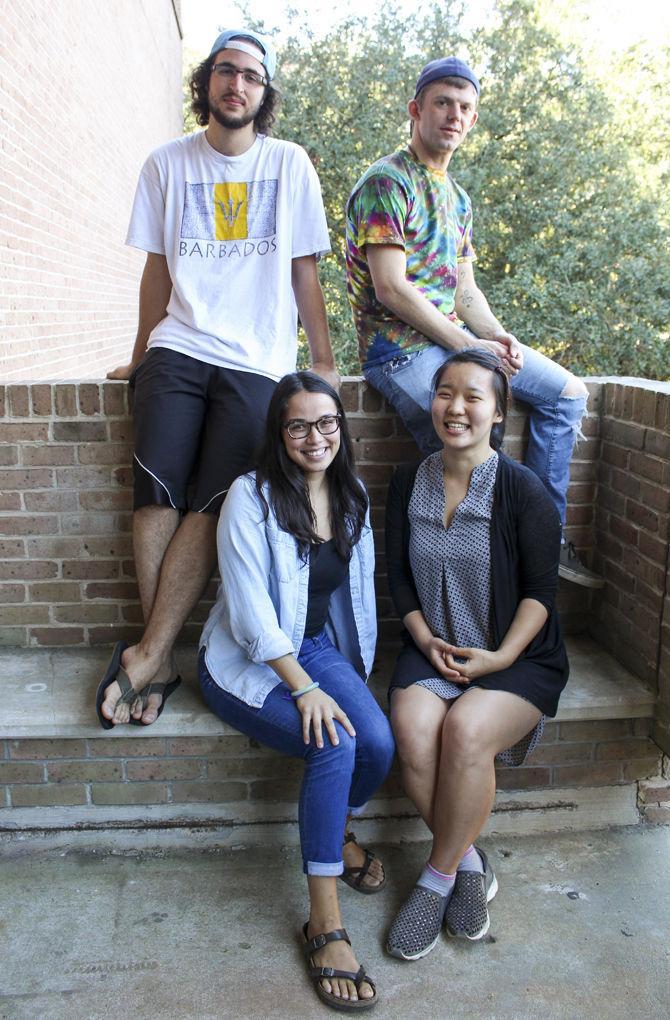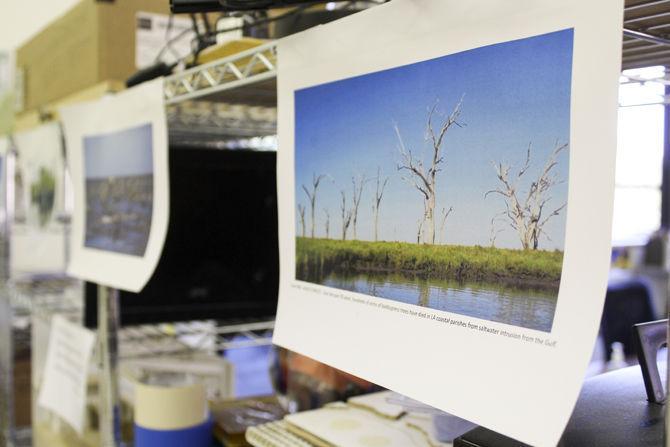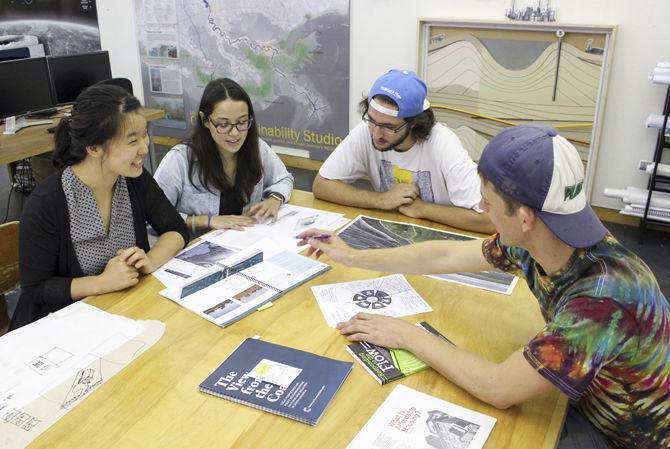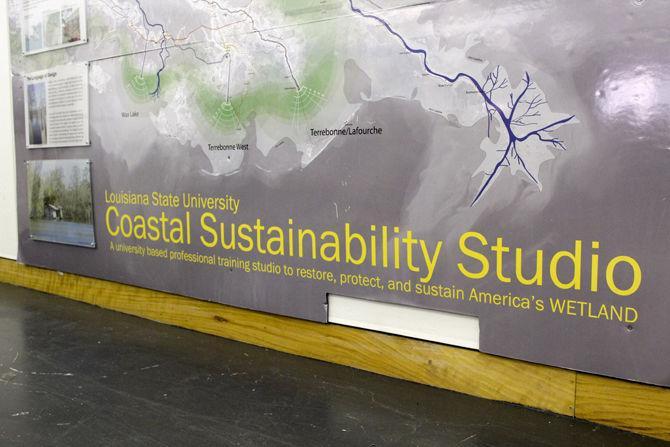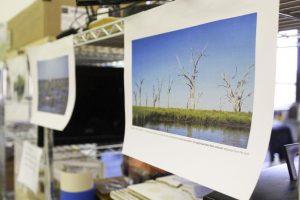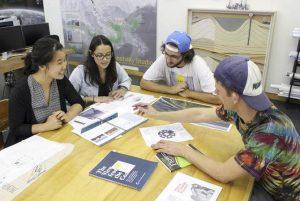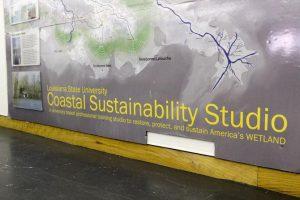While many academic departments rarely operate across disciplines, in the Coastal Sustainability Studio it’s the norm.
Each day at work, geography graduate student Yi Ling Chan develops geographical maps of coastal communities, sometimes leaning over to ask technical advice from the landscape architecture students across the aisle.
While each brings a different skill set to work, every team member has a common goal: to improve the resiliency of coastal communities and slow land loss.
The Coastal Sustainability Studio is an interdisciplinary work space bringing together students, professionals and academics from diverse fields to address coastal issues. Studio participants conduct research and design plans for community sustainability in the face of climate change and land loss.
Studio projects range from a workshop for local politicians to learn about resiliency initiatives to a website for the public to access current research and information on coastal land loss problems. At the heart of the work is the realization that complex issues need complex solutions.
“If we could fix (the coast) with one field of knowledge then it would be fixed already,” said landscape architecture senior Delaney McGuinness.
While the state possesses the technical expertise to address coastal issues, handling the people involved is often more challenging, she said. The Coastal Sustainability Studio is on the front lines of bridging the two.
A crucial puzzle piece when discussing coastal preservation is the importance of the social sciences in developing solutions. Coastal preservation is a national concern because people live along the coast, said Chan.
Without the human element, less attention would be given to the issue, she said. While the scientific elements of coastal land loss are readily quantifiable, people’s happiness, sense of well-being and connection to place are harder to distill into data sets.
“If nobody lived here we wouldn’t be worrying about the coast as much,” Chan said. “At the root of this we are all human. We’re social beings, we have connections to place, we have our ties to our families and our communities. So there has to be that understanding of what’s going on at the community level.”
Understanding emotions at the community level also involves addressing residents’ reticence to embrace changes along the coast, McGuinness said. McGuinness, a New Orleans native, said residents can be fearful of the unknown and resistant to change when the change may not yield tangible benefits in their lifetime.
It’s also easy for residents to forget the danger of coastal land loss when they’re not facing it directly each day. If you don’t have to sandbag your house every day to guard against flooding, it’s easier to put the issue out of mind, she said.
Education is important to increasing community awareness, Chan said. The University is privy to knowledge and resources many people are unable to access, and by distilling that information into pamphlets, infographics and teaching tools the studio is better able to inform the public, she said.
Breaking the information down into an easily digestible form is also crucial to public education, said mass communication graduate student Nicholas Willbanks. Willbanks is revamping the studio’s resiliency website to make it understandable in layman’s terms.
The existing material was written by architects for architects, and the technical jargon can be a deterrent for the casual reader, he said. Simplifying the material encourages more community members to become involved in discussions about coastal issues.
Bringing those discussions to a younger audience is also important for inspiring innovative ideas, McGuinness said. The studio has given graduate and undergraduate students an opportunity to participate in professional projects, but extending the knowledge further to high school and middle school students is important for inspiring passion about the coast, she said.
“If we have a whole generation of people growing up knowing this is an issue I think it’ll be easier to institute change and work toward saving the coast,” Chan said.



